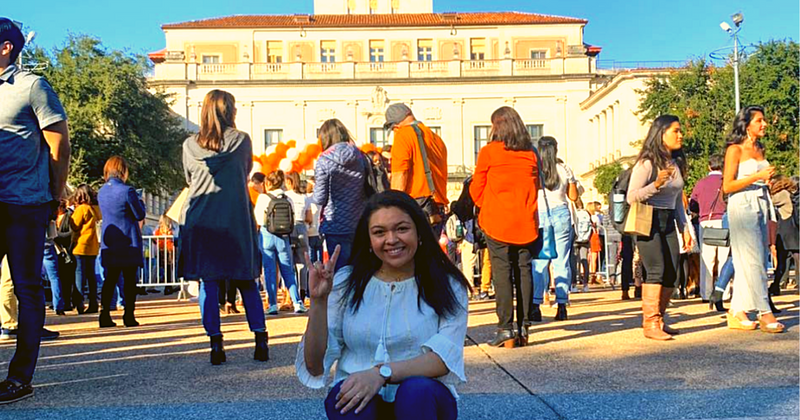Originally published on
During a global pandemic like we are facing today, many have the option of working from home and prioritizing their health and community. Unfortunately, not everyone can fulfill their work responsibilities and get a paycheck from the comfort of their home. I do not work in the healthcare industry, however, I am considered an essential worker since I work in the fast-food industry and work part-time in delivery services. I am one of millions of Latinx Americans who face this pandemic with fear to support themselves and their family.
In fact, the spread of the coronavirus has the potential to hit many of the U.S.’s 60 million Latinos, as stated in the Pew study. According to CBS News, a high share of Latinx and African-American workers cannot work from home. The reality is only 16.2% of Latinx Americans can work from home due to their jobs being low-pay and customer-facing jobs, according to a 2017 U.S. Bureau of Labor Statistic study.
The pandemic has shined a light on the economic inequalities that will leave Latinx and people of color communities to be at the frontline of the virus, according to Human Rights Watch (HRW). There’s a secondary effect, too. To prevent further coronavirus outbreaks, primary and secondary schools are shutting down, enforcing quarantines that, unintendedly, have downstream effects on low-income communities.
When the University of Texas at Austin announced classes would resume online until the end of the semester, my friends packed their bags and went home leaving West Campus to be a ghost town. I do not have the same option.
Since I moved away for college at the age of 18, I have been financially supporting myself making it impossible to go back home like other college students. The responsibilities I have cannot be disregarded because of COVID-19. I have to show up to my hourly-paid job and hope life will eventually go back to normal.
Therefore, it would not be a smart choice to leave my bills and job with no money under my name when I am about to finish college. The stimulus check was helpful and allowed me to pay for one month’s worth of rent, however, it only took some weight off my shoulders because I still have to put myself at risk everyday at work meaning I cannot go home to see my family.
Fortunately, my place of work has given all employees a minimal raise and provides masks, gloves, sanitizers and restrictions on the restaurant to keep us safe. No matter the precautions, the risk will always be present especially since I come into contact with about 100 people a day and most are just starting to take the extra precaution of wearing a mask.
According to the U.S. News, conservative activists demonstrated on the steps of the Texas Capitol building on Saturday April 18 to call for an end to social restrictions aimed at curbing the spread of the coronavirus.
Restrictions placed by White House guidelines state that these limits should be considered to be lifted only if there has been a 14-day decline in coronavirus cases. Austin has yet to see a decline in cases, therefore, it would be absurd to open businesses without following the government’s recommendations. As of April 29, the Austin American-Statesman reports a total of 44 deaths and 1,591 cases confirmed within Travis county.
I understand those who lost their jobs want to get back to work but essential businesses are hiring around the city such as H-E-B, Randalls, Dominos, Favor and UberEats. People’s unwillingness to adapt and do non-essential services makes them selfish and impassive about this situation. Everyone’s non-essential needs can wait until our society and our people are safe.
The protest came despite Republican Gov. Greg Abbott’s announcement April 17 that he plans to start easing such restrictions and enforcing more relaxed rules starting April 24. However, protestors at the Capitol fought for the immediate lifting of restrictions and chanted “Let us work!” in a state where more than a million people have filed for unemployment since the crisis began.
My brother, who is a manager at a Wal-Mart, has faced hardships and hasn’t seen his family for about three weeks. Since he is constantly working and providing the community with essential products, he is considered an essential worker. He faces ignorant and disrespectful individuals who get angry because there are restrictions on many products which can be difficult for a bigger family. He is working six days out of the week and provides all the groceries for two households. When he visits my mother’s house, he stays six feet away from the door and talks with our mother through a spring door. He is not allowed in the house because my grandfather and father are immunocompromised.
Let’s not forget what this means for the class of 2020 —which the internet is calling the class of COVID-19. Like UT Austin, almost 1,149 colleges and universities have moved classes to online platforms affecting 14 million students like myself, according to CNBC. As a college senior, this means the graduation ceremony my family and I have been saving, planning and waiting for will not be happening.
Being a first-gen college student, graduating from college is a big thing for my family and I. Graduating from college all while working full-time has led to many breakdowns and feeling like there was no end. Finally getting to register for my last semester felt like I had accomplished hiking up Mt. Everest and began to see an end. Unfortunately, my family will not get to see and cheer me on while I walk across the stage and receive my bachelor’s.
On April 17, Gov. Abbott announced that public and private school classrooms will remain closed for the remainder of the school year to ensure the safety of Texas communities.
This virus has affected students from all ages. Fourth year college students will step on their campus and they will no longer be students but alumni. Teachers have to teach from home, seniors in high school will not experience prom and 8th graders will be leaving their classmates not knowing if they will be going to high school together.
Georgia, South Carolina and Tennessee have or will soon reopen gyms, nail and hairs salons and theaters. Georgia Gov. Brian Kemp states that he is “more prepared to handle the pandemic”, according to CNN. With the decrease in social distancing there will be an increase of people at risk of exposure and a decline in the country’s medical equipment and healthcare workers who are working to help those in need.
In truth, hospitals across the country have been facing severe shortages of proper protective equipment, testing supplies and ventilators. Between March 23 and March 27, 13 days after the World Health Organization declared COVID-19 a pandemic, the Office of Inspector General interviewed administrators at 323 U.S. hospitals and found they are struggling to keep up with federal and state guidance despite a surge in COVID-19 patients.
Humanity plays a key role in this pandemic and if you are able to stay at home and pay for your necessities then do your part by staying home for everyone else who cannot. There are many Americans, like myself, who do not have the opportunity to do that. Essential workers are not putting themselves at risk to please those who can afford to work from home, but rather to be able to put food on their tables, put a roof over their heads and continue to live the normal life they work to obtain.
________________________________________
By Rosa Ramirez And Elisa Garcia of Latinitas Magazine






